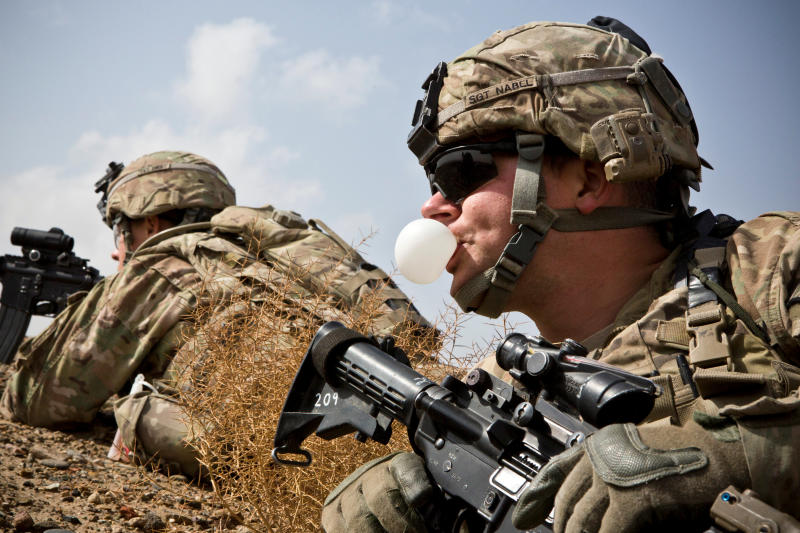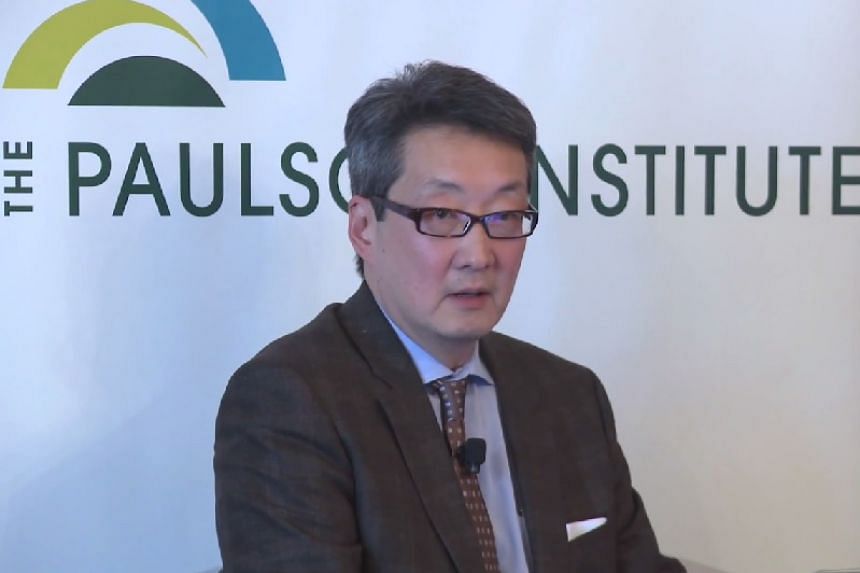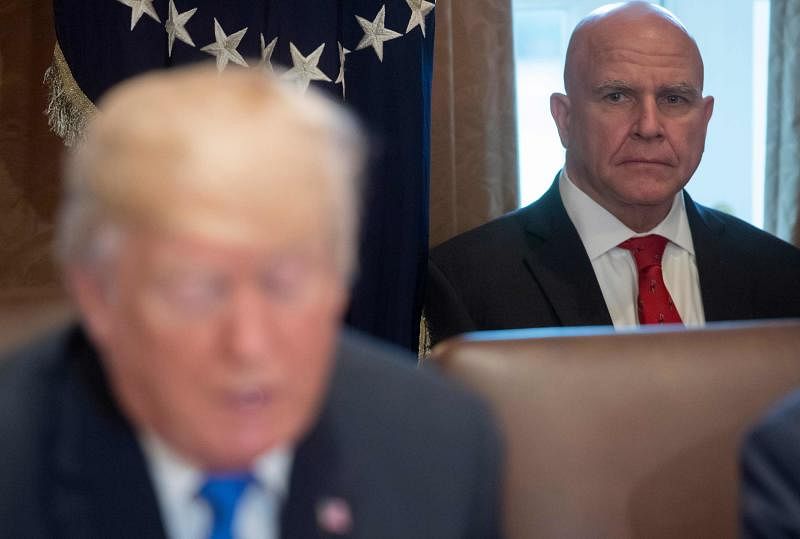News analysis
'Bloody nose' strike on North Korea will trigger all-out war, warn analysts
Sign up now: Get ST's newsletters delivered to your inbox

WASHINGTON - Concerns are mounting over the possibility of a targeted strike by the US on North Korea, with US analysts warning that Washington will face major dilemmas if it were to order such a "bloody nose" strike.
Miscalculations and flawed assumptions could trigger an all-out war, analysts told The Straits Times.
Talk of a "bloody nose" strike on North Korea has been going on for weeks - though the Trump administration says the military option is only one of its many options for dealing with North Korea.
But discussions over the risky move have intensified after Dr Victor Cha, a Georgetown University professor and senior adviser at the Center for Strategic and International Studies, was abruptly dropped this week as White House's pick for US Ambassador to Seoul.
Reports said he had counselled against a military strike, and also against tearing up the US' free trade agreement with South Korea. The Donald Trump administration wants to rectify the US' trade deficits.
The Washington Post also cited a person familiar with the nomination process saying a red flag was raised during Dr Cha's background check that led officials to determine he could not serve in the ambassador's post. No specifics were offered.
Whatever the case, Dr Cha in a commentary in The Washington Post on Thursday (Feb 1) - seemingly a few hours after his nomination had been dropped - cautioned against a "bloody nose" military strike on North Korea. And Dr Cha is by no means a moderate on North Korea.
That alone has raised eyebrows in policy and security circles in Washington and abroad. It suggests that hawks rule the roost in the Trump administration.

"The administration's interest in striking the North appears to be all too real,'' Dr Mira Rapp-Hooper, a senior fellow in the Paul Tsai China Center at Yale Law School and an adjunct senior fellow at the Center for a New American Security in Washington, wrote in The Atlantic on Wednesday.
But such a strike on North Korea would trigger "cataclysm", she warned.
That the US has the resources and ability to mount a targeted strike in short order is beyond doubt.
It has plentiful military assets including three aircraft carriers in the Asia-Pacific region. But a strike would trigger an unpredictable chain of events.
"The US can control what it does, but not what the North sees and believes," warned Dr Robert Jervis, professor of International Affairs at Columbia University, in a piece published on the website 38 North.
"A military strike will want to convey both resolve and restraint, but it is the adversary's perceptions that will determine whether this happens," he wrote.
"This is a situation of intense bargaining which, while being coercive, is not in our unilateral control. We can try to manipulate North Korea's incentives, but it is how Pyongyang sees the situation, estimates our intentions and future behaviour, and decides how to behave that will shape the outcome."
Dr Jervis estimated that the Department of Defence officials he had spoken with put the probability of a military strike higher than he had assumed.
But he was "not sure how carefully people had thought things through", he told The Straits Times.
One of the biggest dilemmas the US faces in striking, say, a North Korean missile facility, would be whether to evacuate American families from Seoul and other places in South Korea within range of retaliation from North Korea.
Starting such an evacuation would send a powerful signal to the North that the US was preparing to strike. But it would also lose the element of surprise.
On any given day, there are 230,000 Americans in South Korea and 90,000 or so in Japan, Dr Cha wrote in the Washington Post commentary.
Projections of all-out war put the potential death toll in the hundreds of thousands in just a few days.
A "bloody nose" suggests a limited but precise strike.
But "one of the crucial dilemmas is, if you hope to keep the war limited you've got to be pretty limited going in" ,Dr Jervis said. "If you think you can't for any number of reasons, then you have to go really big."
President Donald Trump's National Security Adviser General H.R. McMaster has emerged as one of the administration's most hawkish voices on North Korea.

Matt Pottinger, President Trump's top adviser for Asia on the National Security Council, is widely seen as backing Gen McMaster.
The former general in 1997 published an acclaimed autopsy of the Vietnam war titled Dereliction Of Duty, but his field experience has been in the Middle East and he has little experience in north-east Asia.
He has since last summer been building a case for the use of preventive force against North Korea, Dr Rapp-Hooper wrote.
Administration hawks believe Kim Jong Un cannot be deterred.
They see North Korea's participation in the Winter Olympics as a move to drive a wedge between the US and South Korea. They see Mr Kim's long-term plan as waging conventional war - under the threat of his own nuclear umbrella - to drive US forces off the Korean peninsula, and they fear he will proliferate nuclear weapons technology.
"Nuclear deterrence and US military superiority, in other words, would not be enough to halt Kim's mission of peninsular conquest," Dr Rapp-Hooper wrote in The Atlantic.
Dr Cynthia Watson, professor of Strategy at The National War College, told The Straits Times in an e-mail interview: "The Administration believes it must convince Pyongyang that it will act if North Korea does not move to reduce its nuclear threat.
"I believe President Trump and his team genuinely believe they must alter the current trajectory the DPRK nuclear programme is on," she wrote. She stressed that she was expressing her personal opinion.
But she added: "I don't think the military is anxious to launch a strike as they do know well the implications. These are sane, rational professionals who are weighing the relative dangers differently than many people discussing the Korea problem."
As the US had discovered in Vietnam, the "willingness to suffer is a source of power", Dr Jervis warned in his piece published on 38 North.
"The likelihood of the success of our use of force therefore depends on North Korea's will. Second, the North's willingness to bear pain rather than give in is related to what is being demanded of it. The more a state values what it is being asked to give up, the greater its resistance is likely to be."


